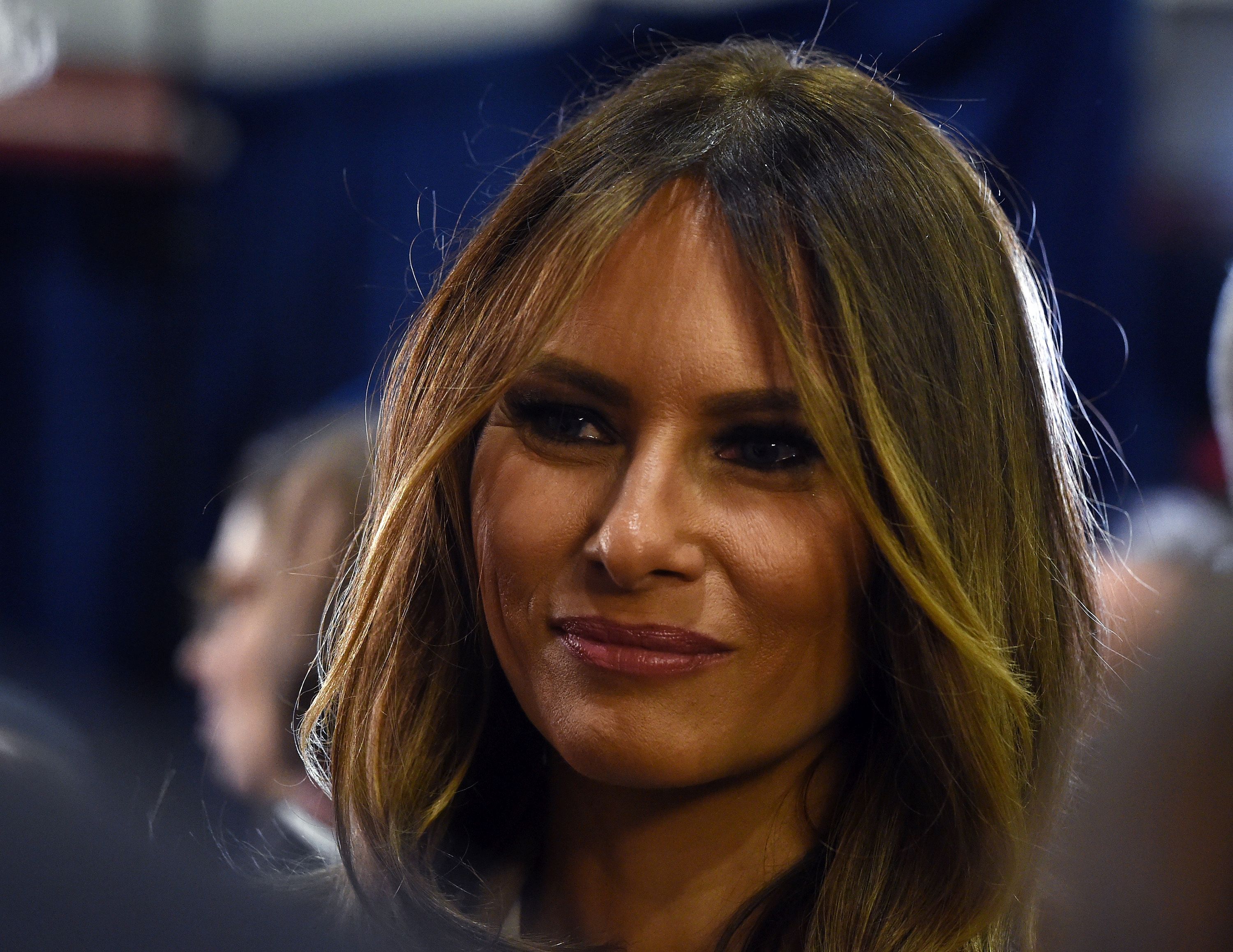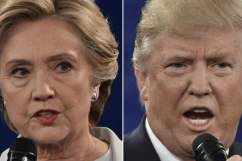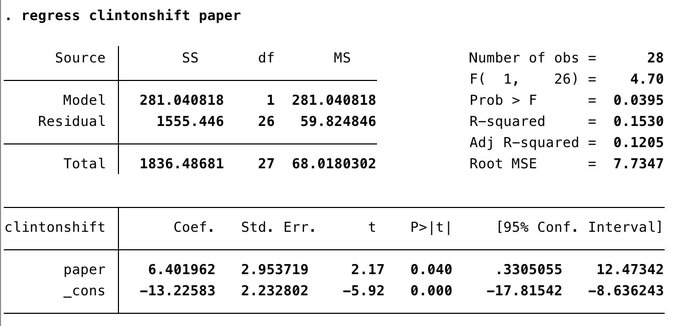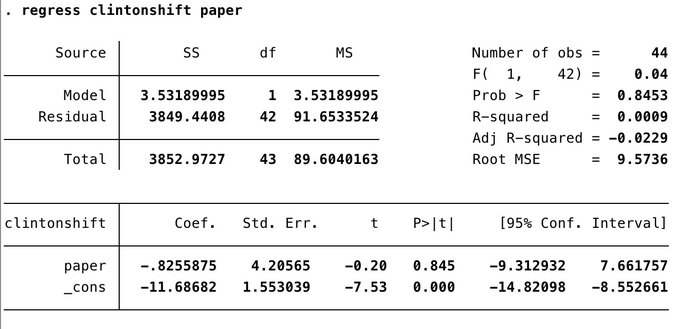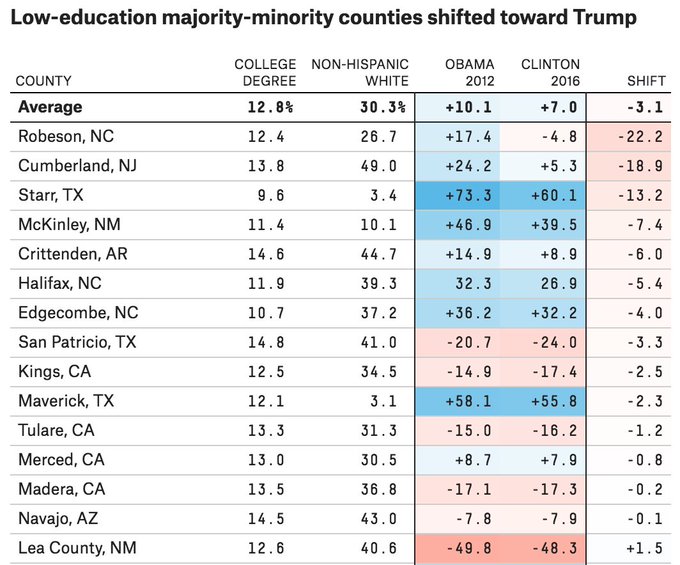
Wisconsin Governor Scott Walker introduces Donald Trump at the beginning of the rally. Upon taking the stage, Trump said that Walker has done a “fantastic job” for the state of Wisconsin. (Getty)
A recount of the 2016 presidential election results in battleground Wisconsin will likely start December 1 and cost $3.5 million, adding new drama to an already contentious election filled with surprise twists.
The recount comes after a group of professors and lawyers raised concerns about the possibility of hacking. Donald Trump decried the recount as a “scam” in a statement on November 26.
The Wisconsin Election Commission “is preparing to move forward with a statewide recount of votes for President of the United States,” Administrator Michael Haas announced in a written statement on November 25.
The recount was requested by the Green Party after its nominee, Jill Stein, raised more than $6 million in just over one day to fund recounts in Wisconsin, Michigan, and Pennsylvania, all states that were surprise upsets for Donald Trump and which he won by fairly small margins. Stein paid the recount bill on November 29.
Stein on November 28 filed a lawsuit to force a hand count of ballots in Wisconsin; the state’s Election Commission had left that decision up to each county. Stein also sued in Pennsylvania, asking a judge to force a recount there. USA Today said Stein supporters also started filing petitions asking for recounts at the individual precinct level, which is the other way in that state to force a recount.
Hillary Clinton’s campaign counsel, Marc Elias, said November 26 that the Clinton campaign will participate in the Wisconsin recount (and possibly also recounts in Pennsylvania and Michigan if they are formally requested) but has not found any actionable evidence of hacking or outside interference in the election.
Other experts have disputed the unproven hacking claims, which were raised in the media shortly before Stein launched her recount fundraising efforts, and the Wisconsin GOP has labeled the recount “absurd.” Some have also accused Stein of wasting money in a scenario that is highly unlikely to overturn the election results; Stein says she is concerned about election integrity.
Meanwhile, the Obama administration is defending the election results, according to Politico, saying, “it has seen no evidence of hackers tampering with the 2016 presidential election” and adding, “We stand behind our election results, which accurately reflect the will of the American people.”
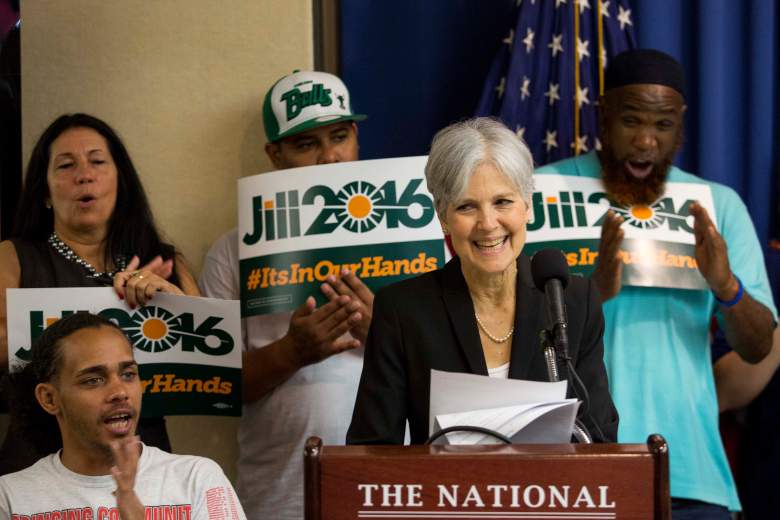
Jill Stein (Getty)
The Wisconsin recount request was first out of the chute because Wisconsin’s deadline for a recount was on November 25. Wisconsin’s electoral votes are not enough to take the presidential election from Trump alone: To prevail, Hillary Clinton would need Michigan and Pennsylvania’s returns to fall too. Demonstrating the steep difficulties in doing so: The Pennsylvania margin was more than 70,000 votes. A judge turned down Stein’s request for a hand count of all Wisconsin ballots, saying, Stein didn’t present “clear and convincing evidence” that Wisconsin voting equipment was compromised, only that it was possible,” according to WBAY-TV.
Trump won Wisconsin by 22,177 votes in a state that had not voted for a Republican presidential candidate since 1984 (although the state has a Republican governor, Republican Legislature, Republican AG, and conservative leaning Supreme Court). Trump’s lead in Michigan: 10,704 votes. His lead in Pennsylvania: 70,638. Stein received 1.4 million votes in the 2016 presidential election overall. She received 31,016 votes in Wisconsin – more than Trump’s margin over Clinton.
The Wisconsin results, per the Election Commission, are as follows:
Donald Trump: 1,404,000
Hillary Clinton: 1,381,823
Darrell L. Castle: 12,156
Gary Johnson: 106,585
Jill Stein: 31,006
Monica Moorehead: 1,769
Rocky Roque De La Fuente: 1,514
Cherunda Fox (write-in): 44
Evan McMullin (write-in): 9,998
There was a smattering of other votes for various write-in candidates and more than 26,000 votes for unspecified write-in candidates.
As a point of comparison, the Florida battle between George W. Bush and Al Gore in 2000 began as the candidates were separated by just over 500 votes.
The Stein efforts come on the heels of the group of professors and lawyers pressuring the Hillary Clinton campaign to seek recounts in the three states after they uncovered what they claim are statistical anomalies in Wisconsin’s results. Other statistical experts have ridiculed those claims, however, and the group has not presented any proof that election returns were hacked or manipulated, although it’s said election returns should be verified to rule out hacking by a foreign government, such as Russia. The Wisconsin Election Commission called the recount in response to Stein’s petition, however, not the statistical claims.
Here’s what you need to know:
1. Wisconsin Is Working Against a Very Tight Deadline for Its Recount & Officials Have Defended the State’s Elections
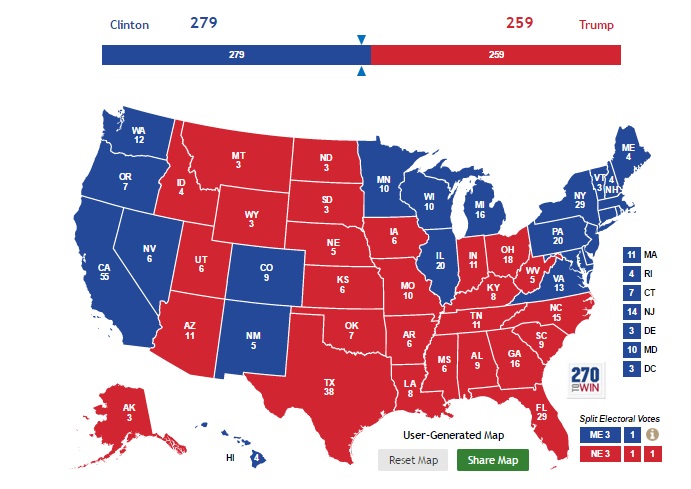
What the electoral map would look like if Clinton had won Wisconsin, Michigan, and Pennsylvania. (270toWin)
The Green Party’s Wisconsin co-chairman George Martin told CNN the party wants to go even farther than a recount and is seeking “reconciliation of paper records” that will investigate the integrity of Wisconsin’s electoral system. Read Stein’s petition here:
The Wisconsin Election Commission said it will cost $3.5 million for the Wisconsin recount, and it will start December 1 if the bill is paid up front. “Wisconsin’s 72 County Clerks expect to hire thousands of temporary workers to assist the county boards of canvassers in recounting the ballots. They also expect to be working extra hours and weekends to finish the recount by 8 p.m. Monday, December 12,” said the Commission. The Commission met to order the recount on November 28:
Haas, of the Wisconsin Election Commission, said in his statement: “We have assembled an internal team to direct the recount, we have been in close consultation with our county clerk partners, and have arranged for legal representation by the Wisconsin Department of Justice. We plan to hold a teleconference meeting for county clerks next week and anticipate the recount will begin late in the week after the Stein campaign has paid the recount fee, which we are still calculating.”
The state uses a mixture of electronic machines and paper ballots that are scanned. In contrast, Pennsylvania almost entirely relies on electronic machines without paper back up, and Michigan relies on paper balloting.
“If nothing else, this is going to give us a very good audit, it’s going to re-assure Wisconsin voters that we have a fair system, that we’re not counting illegal votes,” Elections Commission chairman Mark Thomsen, said, according to CNN, which added that Thomsen “strongly defended the vote count,” saying, “To say we didn’t count them correctly the first time… that somehow illegal votes were counted… is really inappropriate.”
Altogether, the three states amount to enough electoral votes that, had Clinton won them, she would win the Electoral College (she is already way ahead in the popular vote). But she would need all three to flip. See the above electoral map for how it would look if those three states flipped into Clinton’s column.
The Washington Post said Stein asked for the recount 90 minutes before the deadline, and added that Wisconsin has only until December 13 to complete it. Reform Party nominee Roque “Rocky” De La Fuente has also asked for a Wisconsin recount, The Post said.
The Wisconsin Election Commission has a detailed manual spelling out the procedures. The deadlines to seek recounts are November 28 in Pennsylvania, and November 30 in Michigan.
Read more about Donald Trump and Melania in Spanish at AhoraMismo.com:
2. Wisconsin Last Conducted a Recount in 2011 After Thousands of Votes Were Accidentally Left Out of Returns & State Republicans Are Criticizing the New Effort as ‘Absurd’
The last statewide recount was of the state Supreme Court election in 2011, the culmination of a bitter battle that broke down along party lines in what was perceived as a proxy war in the Governor Scott Walker labor battles.
“At that time, the Associated Press surveyed county clerks and reported that costs to the counties exceeded $520,000, though several counties did not respond to the AP’s survey,” The Election Commission wrote. “That election had 1.5 million votes, and Haas said the Commission expects the costs to be higher for an election with 2.975 million votes.”
The conservative leaning candidate, David Prosser, led by just over 7,000 votes before the recount. He prevailed after it, also. His vote totals eroded by only about 310 votes. That election had dramatic and bizarre twists and turns. Initially, it was reported that Prosser’s challenger had won by a tiny margin (she even claimed victory), but then the County Clerk in the Republican stronghold of Waukesha County revealed she accidentally did not count thousands of votes. That clerk no longer holds the position.
Somewhat ironically (or perhaps very, depending on your point of view), in Wisconsin, Republicans have led claims of voter fraud, whereas Democrats have generally claimed it’s rare and not a problem. A Republican-championed Voter ID law went into effect for the first time in Wisconsin for the November 8 general election, and it’s been the subject of intense disputes and legal battles.
A University of Wisconsin professor told The Milwaukee Journal Sentinel that Wisconsin’s election machines “are not connected to the internet,” making hacking very difficult. The Wisconsin State Journal said state GOP officials have criticized the recount as “absurd” and an “expensive political stunt.”
Exit polls showed Clinton winning Wisconsin, and the discrepancy between the final results and those polls was 4.8%, according to a chart compiled by TDMSResearch.com.
The Wisconsin Election Commission is still trying to figure out how much the presidential recount will cost and how the costs “will be assessed to the campaigns,” the statement said.
The Commission said it must meet a December 13 federal deadline, adding, “As a result, county boards of canvassers may need to work evenings and weekends to meet the deadlines.” The Milwaukee Journal Sentinel reported it was possible the state could forfeit its 10 electoral votes if it can’t meet that deadline. However, even without Wisconsin, Trump would still lead the Electoral College.
Haas said that the deadline would be very challenging. In a memo to Wisconsin County Clerks about the recount, dated November 25, the Election Commission wrote, “Under federal law, there is a ‘safe harbor’ provision which requires any election dispute involving a presidential election to be settled within 35 days of Election Day, which is December 13, 2016 in this case….essentially it means that we will have an incredibly tight window to complete the audit- most likely less than two weeks from the date that the recount is ordered.”
3. Wisconsin Will Retabulate & Examine Votes & Counties Get to Decide Whether to Count Then by Hand
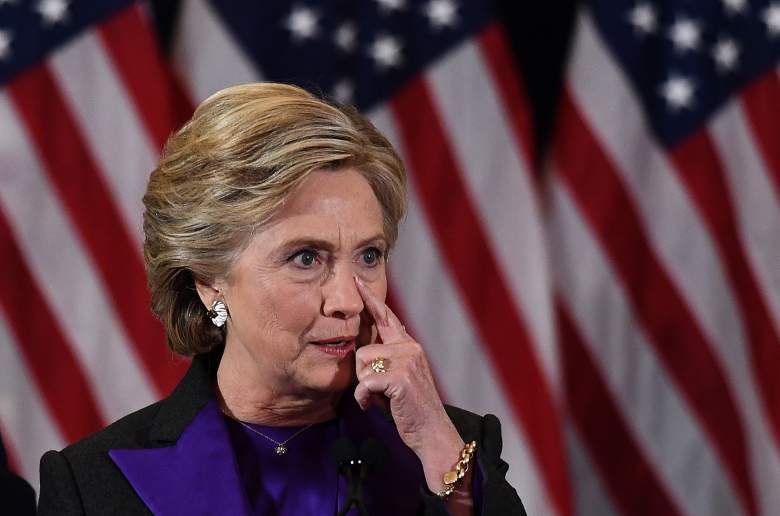
Hillary Clinton pauses as she makes a concession speech after being defeated by Republican President-elect Donald Trump. (Getty)
“A recount is different than an audit and is more rigorous,” the Election Commission said in the statement. “More than 100 reporting units across the state were randomly selected for a separate audit of their voting equipment as required by state law, and that process has already begun.”
Electronic voting equipment audits “determine whether all properly-marked ballots are accurately tabulated by the equipment. In a recount, all ballots (including those that were originally hand counted) are examined to determine voter intent before being retabulated,” said the Commission.
“In addition, the county boards of canvassers will examine other documents, including poll lists, written absentee applications, rejected absentee ballots, and provisional ballots before counting the votes,” the Commission explained.
Will all votes be counted by hand? That’s not clear. Stein is now asking a judge to decide. The judge ruled it’s up to the counties.
The Commission’s memo to County Clerks says “a somewhat recent legislative change now provides the option to the county canvass board to determine whether to conduct the recount via a hand-count or electronic voting equipment.”
However, the commission added that the “Stein campaign has indicated that their preferred method for conducting the recount will be by hand instead of by electronic voting equipment. Only ballots that were tabulated by optical scan voting equipment may be recounted by voting equipment (barring a court order). Ballots cast on touchscreen (DRE) voting equipment and ballot that were counted by hand on election night will need to be recounted by hand.”
The Commission memo added, “Please let WEC staff know which tabulation method you believe will be used by the county canvass board by noon this Monday, November 28 as this may factor into the decision by either campaign to seek a court order mandating a hand recount. In discussions with Wisconsin election officials over the years, a hand-count may not be as timing consuming as one may think and avoids pre-testing of the equipment and reprogramming of memory devices. The decision whether to tabulate by equipment or by hand is to be made by each canvass board unless a court orders otherwise, but we would like to get a sense of the method you expect to be used.”
Haas noted that the Commission’s role “is to order the recount, to provide legal guidance to the counties during the recount, and to certify the results. If the candidates disagree with the results of the recount, the law gives them the right to appeal in circuit court within five business days after the recount is completed.”
The Commission said Wisconsin “has the most decentralized election system in the United States. The system has strong local control coupled with state oversight, resting on the partnership between the Wisconsin Elections Commission, the 72 county clerks, and the 1,854 municipal clerks.”
Because of this decentralization, said the Commission, “State law clearly gives each county’s Board of Canvassers the primary authority to conduct the recount, and to decide which ballots should and should not be counted. Recounting votes is an open, transparent process in which each of the candidates may have representatives present to raise objections, and where the public may be present to observe.”
4. A Group of Professors & Lawyers Wants the Integrity of the Election Checked for Possible Hacking

J. Alex Halderman (Halderman website).
The renewed scrutiny on the election results from the three states gained more prominence November 22 when New York Magazine ran an extensive article entitled, “Experts Urge Clinton Campaign to Challenge Election Results in 3 Swing States.” Stein’s recount fundraising efforts started a short time later.
The article reported that a group of data experts and lawyers “which includes voting-rights attorney John Bonifaz and J. Alex Halderman, the director of the University of Michigan Center for Computer Security and Society, believes they’ve found persuasive evidence that results in Wisconsin, Michigan, and Pennsylvania may have been manipulated or hacked.”
Halderman then wrote a detailed explanation and, to some degree, clarification of his theories on Medium.com.
The group’s central theory is that a foreign government could have hacked the election because of what they argue are suspicious patterns in voting results in Wisconsin (which other data experts have ridiculed, saying they can be explained away by education and race variables).
In Wisconsin, says New York Magazine, the group argues that its analysis shows Hillary “Clinton received 7 percent fewer votes in counties that relied on electronic-voting machines compared with counties that used optical scanners and paper ballots.” They argue this might have cost her 30,000 votes.
According to The New York Daily News, “Wisconsin’s metropolitan areas, where Clinton did well, use paper ballots. Rural Wisconsin, where she did not, relies on electronic machines.” The newspaper says the group has no proof of hacking. Of course, it’s possible that Clinton simply did not appeal to rural voters. Indeed, white working class voters in Wisconsin, Michigan, and Pennsylvania fled the Democrats out of economic stress and a desire for a change candidate who is a political and establishment outsider, one narrative holds, while Clinton did not motivate the Obama coalition and turn out urban voters to the degree she needed.
The group has not presented similar data on Michigan and Pennsylvania. (In the latter state, a court decides whether to grant a recount.)
The Clinton campaign and various intelligence agencies have accused the Russian government of staging a series of hacks – including those published by WikiLeaks – that hurt Clinton’s chances during the campaign, including hacking into the emails of her campaign chairman, John Podesta. The group seeking the recount has not proven any election hacking or manipulation but argues the previous hacks mean the election’s integrity should be validated.
Stein told CNN: “We think the forensic computer experts have raised serious questions. What we do know is that this was a hack-riddled election, we saw hacks into voter databases, into party databases, into individual email accounts.”
A series of other prominent election data analysts have said the group’s claims don’t make sense. Vox published an article outlining flaws in the claims, pointing out that white rural voters all over the Midwest shifted to Trump, including in states that use only paper ballots (like Iowa.) Vox says Michigan only uses paper ballots.
In August 2016, CNN reported that “databases for election systems in Illinois and Arizona” were breached by hackers.
One of the skeptical voices about the new claims is Nate Silver, of the blog FiveThirtyEight, which analyzes elections using statistics. Silver has been repeatedly posting about the claims on Twitter. He pointed out that Michigan uses paper ballots:
Silver controlled for demographics in Wisconsin and found that the difference in voting disappears. He believes that race and education levels determined whether an area would shift toward Trump.
He also didn’t find anything amiss in Pennsylvania when you control for demographic differences.
He wasn’t the only person casting doubts on the theories.
Nate Cohn of the New York Times’ UpShot page and the Cook Political Report’s Dave Wasserman were skeptical too.
5. Trump’s Campaign Has Mocked the Effort & Hillary Clinton Supports the Recount

The Republican Party of Wisconsin took this photo and shared it on Facebook to show the crowd of people who attended a Donald Trump rally in Wisconsin. (Getty)
Trump had stayed silent on the recount efforts until November 26, when he released a statement calling them a “scam.”
“The people have spoken and the election is over, and as Hillary Clinton herself said on election night, in addition to her conceding by congratulating me, ‘We must accept this result and then look to the future,’” Trump said, calling the recount “ridiculous.”
His campaign manager Kellyanne Conway told Bloomberg, “What a pack of sore losers. After asking Mr. Trump and his team a million times on the trail, ‘Will HE accept the election results?’ it turns out Team Hillary and her new BFF Jill Stein can’t accept reality.” Stein was critical of Clinton during the election.
Trump also unleashed a slew of tweets saying nothing will change and pointing out that Clinton criticized him during a debate for saying the election was rigged.
In his most controversial tweet, Trump claimed, without offering any evidence, that millions of people voted illegally in the 2016 presidential election. (Read more about this unproven claim and its possible conspiracy theory origins here.)
Trump campaigned several times in Wisconsin. Wisconsin is a state that is the home to Republican National Committee Chairman (and now Trump chief of staff) Reince Priebus as well as House Speaker Paul Ryan. The state’s GOP had honed its get-out-the-vote machine during the Walker recall wars over public sector collective bargaining.
Hillary Clinton did not visit the state after the primary, and there was some support for third party candidates. Trump also had the boosting (if somewhat belatedly) of a Republican governor, Walker (although he is very divisive in his home state) and late-breaking voters. Trump also may have benefited from millions of dollars in last-minute spending that came into the state to boost Wisconsin’s Republican Senator Ron Johnson, whose seat was believed to be critical in retaining Republican control of the U.S. Senate. Clinton also may also have suffered from last-minute increases to Obamacare premiums that upset voters in some battleground states, including Wisconsin.
Trump’s campaign spokeswoman, Kellyanne Conway, mocked the recount efforts on Twitter.
Trump, who complained of the election being “rigged” before his Electoral College victory, was initially silent about it, instead tweeting about cabinet choices and keeping companies in the country. Clinton won the popular vote by more than 2 million votes, but Trump has a significant lead in the Electoral College (306-232). The Electoral College votes in December.
Clinton and her campaign initially “remained quiet on Stein’s crusade,” NBC News said of the only candidate the recount could theoretically benefit (outside of Trump, if the results verify his victory). Then, after Stein filed, Elias said the campaign would participate to ensure fair elections.
In a post on the site Medium, Elias wrote, “It should go without saying that we take these concerns extremely seriously. We certainly understand the heartbreak felt by so many who worked so hard to elect Hillary Clinton, and it is a fundamental principle of our democracy to ensure that every vote is properly counted.”
He added, “This election cycle was unique in the degree of foreign interference witnessed throughout the campaign: the U.S. government concluded that Russian state actors were behind the hacks of the Democratic National Committee and the personal email accounts of Hillary for America campaign officials, and just yesterday, the Washington Post reported that the Russian government was behind much of the ‘fake news’ propaganda that circulated online in the closing weeks of the election.”
Elias wrote that the campaign had met with experts and analyzed data to study the possibility of hacking or election manipulation, but concluded, “Because we had not uncovered any actionable evidence of hacking or outside attempts to alter the voting technology, we had not planned to exercise this option ourselves.” However, he said the campaign would participate in Stein’s efforts to ensure election fairness, while acknowledging that even the closest margin in Michigan “well exceeds the largest margin ever overcome in a recount.”
For her part, Stein and other third party candidates have been criticized by some Clinton supporters for contributing to Clinton’s loss by siphoning votes from her.
Stein was critical of Clinton during the campaign, and she has said she was seeking the recount not to help Clinton but rather to verify election integrity. The Election Commission spokesman did not respond when asked how many of the write-in votes were for Clinton’s primary candidate Bernie Sanders, but the number of write-in votes for undeclared candidates exceeds Trump’s margin of victory in Wisconsin.
NBC News said unmotivated Democratic voters to vote for Clinton in a year of political outsiders may be behind the voting patterns, not fraud, according to some experts.

